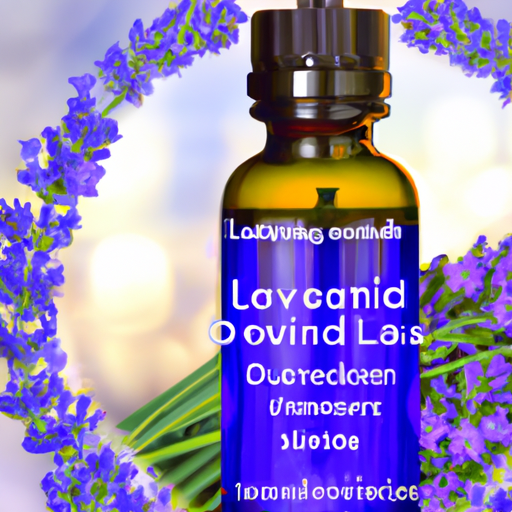-
Table of Contents
- Introduction
- Is Lavender Essential Oil Safe for Children?
- How to Use Lavender Essential Oil Safely
- What Are the Side Effects of Lavender Essential Oil?
- How to Avoid Overdosing on Lavender Essential Oil
- What Are the Risks of Ingesting Lavender Essential Oil?
- How to Spot a Fake Lavender Essential Oil
- What Are the Benefits of Lavender Essential Oil?
- Q&A
- Conclusion
Introduction
Lavender essential oil is a popular natural remedy used for a variety of ailments, including anxiety, insomnia, and skin irritation. While lavender essential oil is generally considered safe, there are some potential risks associated with its use. This article will discuss the potential dangers of lavender essential oil, including skin irritation, allergic reactions, and drug interactions. It will also provide tips on how to safely use lavender essential oil.
Is Lavender Essential Oil Safe for Children?
Lavender essential oil is a popular natural remedy for a variety of ailments, including anxiety, insomnia, and skin irritations. While it is generally considered safe for adults, there is some debate about its safety for children.
The primary concern with using lavender essential oil on children is its potential to cause skin irritation. Lavender essential oil is highly concentrated and can cause skin irritation if used in large amounts or if it is not properly diluted. It is important to use only a few drops of lavender essential oil when applying it to a child’s skin and to dilute it with a carrier oil, such as coconut oil or jojoba oil.
In addition, lavender essential oil should not be used on children under the age of two. This is because their skin is more sensitive and may be more prone to irritation.
It is also important to note that lavender essential oil should not be ingested by children. Ingesting lavender essential oil can cause nausea, vomiting, and other digestive issues.
Finally, it is important to consult with a doctor before using lavender essential oil on a child. This is especially true if the child has any underlying medical conditions or is taking any medications.
In conclusion, lavender essential oil can be used safely on children, but it is important to use it with caution. It should be diluted with a carrier oil and should not be used on children under the age of two or ingested by children. It is also important to consult with a doctor before using lavender essential oil on a child.
How to Use Lavender Essential Oil Safely
Lavender essential oil is a popular natural remedy for a variety of ailments, from stress relief to skin care. It is important to use lavender essential oil safely in order to maximize its benefits and minimize any potential risks.
When using lavender essential oil, it is important to dilute it with a carrier oil, such as almond oil, coconut oil, or jojoba oil. This will help to reduce the risk of skin irritation or other adverse reactions. It is also important to use only pure, therapeutic grade essential oils, as lower quality oils may contain impurities that can be harmful.
It is also important to be aware of any potential interactions between lavender essential oil and any medications you may be taking. Lavender essential oil can interact with certain medications, such as sedatives, so it is important to consult with your doctor before using it.
When using lavender essential oil, it is important to start with a small amount and gradually increase the amount as needed. This will help to ensure that you do not experience any adverse reactions.
Finally, it is important to store lavender essential oil in a cool, dark place, away from direct sunlight. This will help to ensure that the oil retains its potency and effectiveness.
By following these simple guidelines, you can safely and effectively use lavender essential oil to enjoy its many benefits.
What Are the Side Effects of Lavender Essential Oil?
Lavender essential oil is a popular natural remedy for a variety of ailments, including anxiety, insomnia, and skin irritation. While it is generally considered safe, there are some potential side effects associated with its use.
The most common side effect of lavender essential oil is skin irritation. This can occur when the oil is applied directly to the skin, as it can cause redness, itching, and burning. To reduce the risk of skin irritation, it is important to dilute the oil with a carrier oil, such as coconut or jojoba oil, before applying it to the skin.
Inhaling lavender essential oil can also cause some side effects, such as headaches, dizziness, and nausea. People who are sensitive to the scent of lavender may experience these symptoms more severely.
In rare cases, lavender essential oil can cause an allergic reaction. Symptoms of an allergic reaction include hives, swelling, difficulty breathing, and anaphylaxis. If you experience any of these symptoms after using lavender essential oil, seek medical attention immediately.
Finally, lavender essential oil should not be taken internally. Ingesting lavender essential oil can cause serious side effects, such as vomiting, diarrhea, and liver damage.
In conclusion, lavender essential oil is generally considered safe, but it can cause some side effects, such as skin irritation, headaches, dizziness, nausea, and allergic reactions. It is important to dilute the oil with a carrier oil before applying it to the skin, and it should never be taken internally. If you experience any serious side effects after using lavender essential oil, seek medical attention immediately.
How to Avoid Overdosing on Lavender Essential Oil
Lavender essential oil is a popular natural remedy for a variety of ailments, including anxiety, insomnia, and skin irritation. However, it is important to use lavender essential oil safely and in moderation to avoid overdosing. Here are some tips to help you avoid overdosing on lavender essential oil:
1. Follow the instructions on the label. Lavender essential oil is a powerful substance and should be used in accordance with the instructions on the label. Pay close attention to the recommended dosage and frequency of use.
2. Dilute the oil. Lavender essential oil should always be diluted with a carrier oil, such as coconut oil, before applying it to the skin. This will help to reduce the risk of skin irritation and other adverse reactions.
3. Start with a small amount. When using lavender essential oil for the first time, it is best to start with a small amount and gradually increase the dosage as needed.
4. Avoid taking it internally. Lavender essential oil should never be taken internally, as it can be toxic if ingested in large amounts.
5. Consult a healthcare professional. If you are pregnant, breastfeeding, or have any underlying medical conditions, it is best to consult a healthcare professional before using lavender essential oil.
By following these tips, you can help ensure that you are using lavender essential oil safely and avoiding any potential risks associated with overdosing.
What Are the Risks of Ingesting Lavender Essential Oil?
Ingesting lavender essential oil can be dangerous and should be avoided. Lavender essential oil is highly concentrated and can cause serious side effects if ingested. The most common side effects of ingesting lavender essential oil include nausea, vomiting, headaches, dizziness, and confusion. In some cases, ingesting lavender essential oil can cause seizures, coma, and even death.
In addition to the physical risks associated with ingesting lavender essential oil, there are also potential psychological risks. Lavender essential oil can cause feelings of anxiety, depression, and confusion. It can also cause hallucinations and delusions.
It is important to note that lavender essential oil should never be ingested in any form. It should only be used topically or aromatically. If you are considering using lavender essential oil, it is important to consult with a qualified healthcare professional before doing so. They can provide guidance on the proper use and dosage of the oil.
In conclusion, ingesting lavender essential oil can be dangerous and should be avoided. It can cause serious physical and psychological side effects, and in some cases, can even be fatal. If you are considering using lavender essential oil, it is important to consult with a qualified healthcare professional before doing so.
How to Spot a Fake Lavender Essential Oil
Lavender essential oil is a popular and versatile oil that has many uses, from aromatherapy to skincare. Unfortunately, there are many fake lavender essential oils on the market, so it is important to know how to spot a fake.
The first step in spotting a fake lavender essential oil is to check the label. If the label does not list the Latin name of the plant, Lavandula angustifolia, then it is likely not a genuine lavender essential oil. Additionally, if the label does not list the country of origin, it is likely not a genuine product.
The next step is to check the color of the oil. Genuine lavender essential oil should be a pale yellow or greenish-yellow color. If the oil is a deep yellow or brown color, it is likely not genuine.
The scent of the oil is also an important factor. Genuine lavender essential oil should have a sweet, floral scent. If the oil has a chemical or medicinal smell, it is likely not genuine.
Finally, it is important to check the price of the oil. Genuine lavender essential oil is usually quite expensive, so if the price is too good to be true, it is likely not genuine.
By following these steps, you can easily spot a fake lavender essential oil. Remember to always check the label, color, scent, and price of the oil before purchasing to ensure you are getting a genuine product.
What Are the Benefits of Lavender Essential Oil?
Lavender essential oil is a popular natural remedy with a variety of uses and benefits. It is derived from the lavender plant, which is native to the Mediterranean region and is now grown in many parts of the world. Lavender essential oil has a sweet, floral aroma and is used in aromatherapy, massage, and skin care.
The primary benefit of lavender essential oil is its calming and relaxing effects. It has been used for centuries to reduce stress and anxiety, improve sleep, and promote relaxation. Studies have shown that lavender essential oil can reduce heart rate and blood pressure, and improve mood. It can also help to reduce symptoms of depression and anxiety.
In addition to its calming effects, lavender essential oil has many other benefits. It has antiseptic and anti-inflammatory properties, making it useful for treating minor cuts, scrapes, and burns. It can also be used to treat skin conditions such as acne, eczema, and psoriasis. Lavender essential oil can also be used to repel insects and soothe insect bites.
Lavender essential oil is also used in aromatherapy to promote relaxation and reduce stress. It can be used in a diffuser or added to a bath or massage oil. It can also be used in a compress or applied directly to the skin.
Overall, lavender essential oil is a versatile natural remedy with a variety of uses and benefits. It can be used to reduce stress and anxiety, improve sleep, and treat minor skin conditions. It can also be used in aromatherapy to promote relaxation and reduce stress.
Q&A
1. What are the potential side effects of lavender essential oil?
The potential side effects of lavender essential oil include skin irritation, headaches, nausea, vomiting, and allergic reactions. It can also interact with certain medications, so it is important to consult with a doctor before using lavender essential oil.
2. Is lavender essential oil safe for children?
Lavender essential oil should not be used on children under the age of two. For children over the age of two, it is best to consult with a doctor before using lavender essential oil.
3. Is lavender essential oil safe for pregnant women?
It is not recommended for pregnant women to use lavender essential oil.
4. Can lavender essential oil be ingested?
No, lavender essential oil should not be ingested.
5. Can lavender essential oil be used on pets?
No, lavender essential oil should not be used on pets.
6. Can lavender essential oil be used on the skin?
Yes, lavender essential oil can be used on the skin, but it is important to dilute it with a carrier oil such as coconut oil or jojoba oil.
7. Is lavender essential oil flammable?
Yes, lavender essential oil is flammable and should be kept away from open flames.
Conclusion
In conclusion, lavender essential oil can be a great natural remedy for many ailments, but it is important to be aware of the potential dangers associated with its use. Lavender essential oil can be toxic if ingested, and it can cause skin irritation and allergic reactions if used topically. It is also important to be aware of the potential interactions with other medications and to always consult a healthcare professional before using lavender essential oil.




